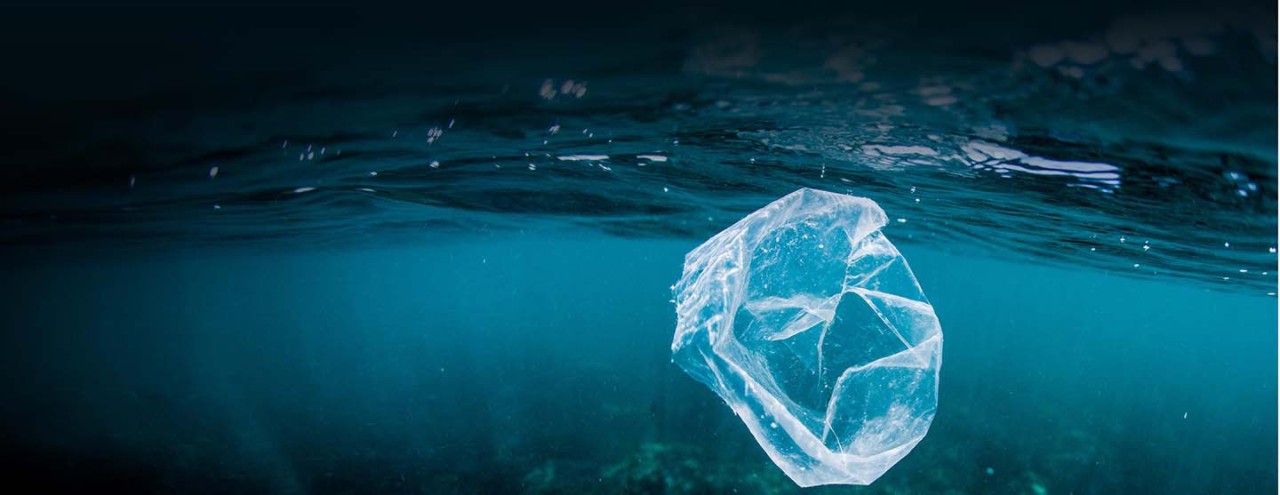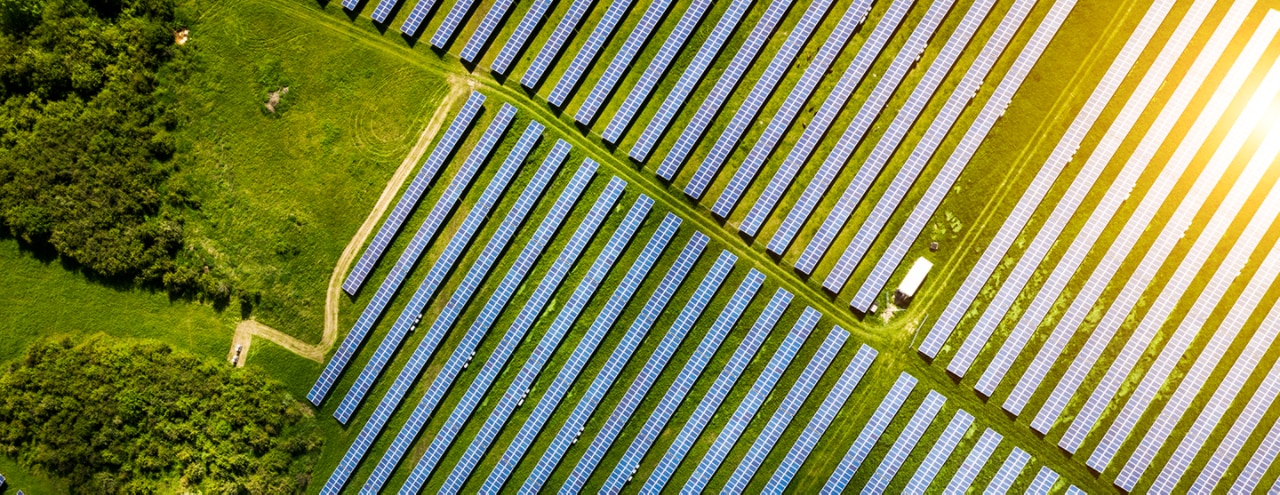Planet
A holistic approach to product stewardship
Propelled by our employees’ foresight and energy, we relentlessly pursue solutions to sustainability challenges.
The baseline for sustainable business practices is ever rising. Governments around the world continue to update safety and sustainability regulations, but they can’t keep up with people’s expectations. This movement — this call to do better — is being led from the ground up. Organizations must elevate their standards for sustainable business practices, exceeding what is needed today for a better tomorrow.
Product stewardship targets
Product quality, efficacy, and ingenuity have always been nonnegotiable at Medtronic — but our impact goes beyond patients. To support a healthy planet, we’re working to find opportunities to improve product stewardship — from design and manufacturing, to packaging, distribution, reuse, and disposal. In FY23, we set five new product stewardship targets:
- Publish partial life cycle assessments (LCAs) for 100% of products and additionally publish full LCAs for 50% of products
- Convert 50% of eligible product codes to electronic Instructions for Use within applicable regions
- Integrate circularity and eco-design criteria into the New Product Development process
- Achieve one of the following qualities for 95% of eligible plastic packaging: is industrially recyclable, contains postindustrial recycled content, demonstrates optimized design (by volume, weight, or thickness)
- Reduce packaging for 20 additional high-volume products for a total of 50% reduction against the FY21 baseline
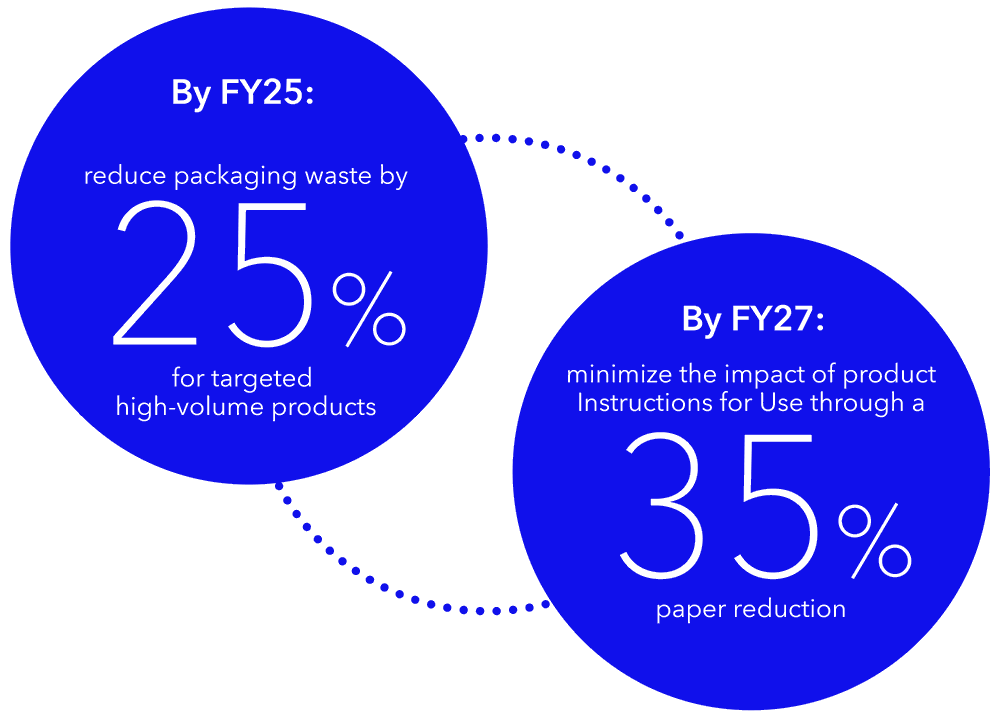

Analysis inspires action
In 2020, one of our many supply chain teams wanted to better understand the environmental impact of transporting our lifesaving products around the world. While the initial aim was to develop a detailed assessment of emissions, the team didn’t stop there.
Following the initial evaluation, our team reached out to carriers to discuss potential approaches for reducing, mitigating, or offsetting emissions. Through close collaboration with our second-largest carrier, UPS, our team found a way to offset a substantial portion of our transit-related carbon emissions across that part of the business. With a “we can do more” mindset, we continue looking for ways to reduce carbon emissions through sustainable business practices, route efficiencies, modal improvements, and offsetting programs.
Increasing warehouse space increases efficiencies
In 2017, Medtronic Montreal employees had a hunch they could both increase warehouse space and ship products using more sustainable business practices. Acting on this hunch, an action team of employees from different functions worked with the supplier to develop a solution.
After some creative brainstorming, the team found a better way to pack and store catheter trays and lids. A simple change (reorienting the packaging layout from vertical to horizontal) meant that fewer pallets and boxes needed to be driven from point A to point B.
And the benefits extend well beyond warehouse organization:

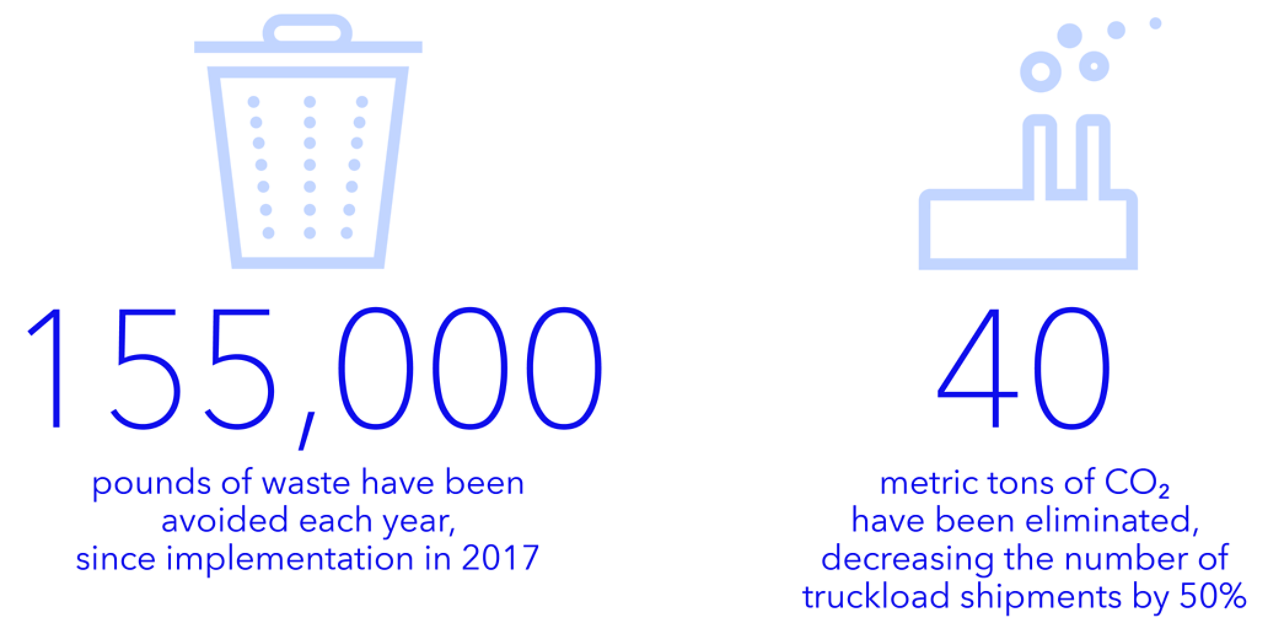
Expanding product stewardship extends the life of our planet
In the United States, approximately three million tons of electronic waste are generated each year. That’s 190 pounds per second. So, when our Cardiac Rhythm and Heart Failure (CRHF) Home Monitor team looked for ways to reduce manufacturing costs, they also looked for ways to reduce waste.
The team reviewed every part of the return and refurbishing process to make it easier to extend the life of the monitors. First, working closely with our Packaging and Global Logistics teams, we streamlined the return pathway so patients could easily mail back the monitors. Then, we meticulously re-engineered the refurbishment process, which consisted of dismantling, cleaning, inspecting, replacing, and testing components within the devices. Since the start and implementation of the new system:
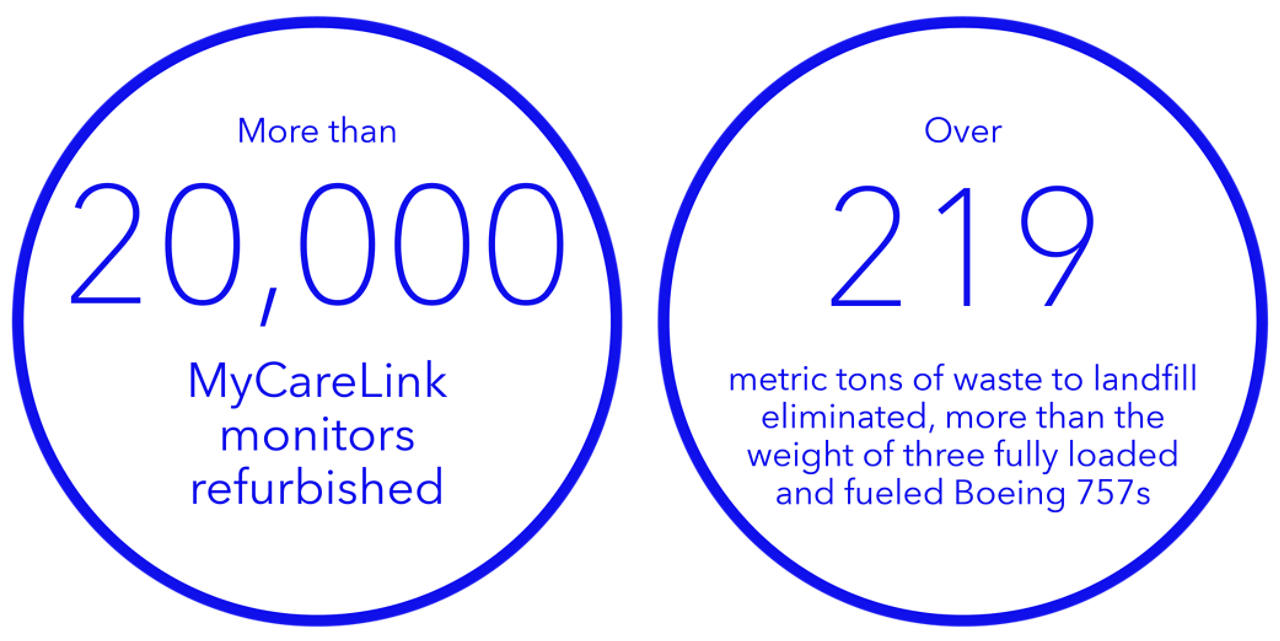
Everyone doing their part, together
Product stewardship and sustainable business practices aren’t the responsibility of one team. We encourage employees around the world to look for new ways to optimize packaging, manufacturing, shipping, and product life cycles. When it comes to improving the health of our planet, everyone has a part to play — and we take ours to heart.
